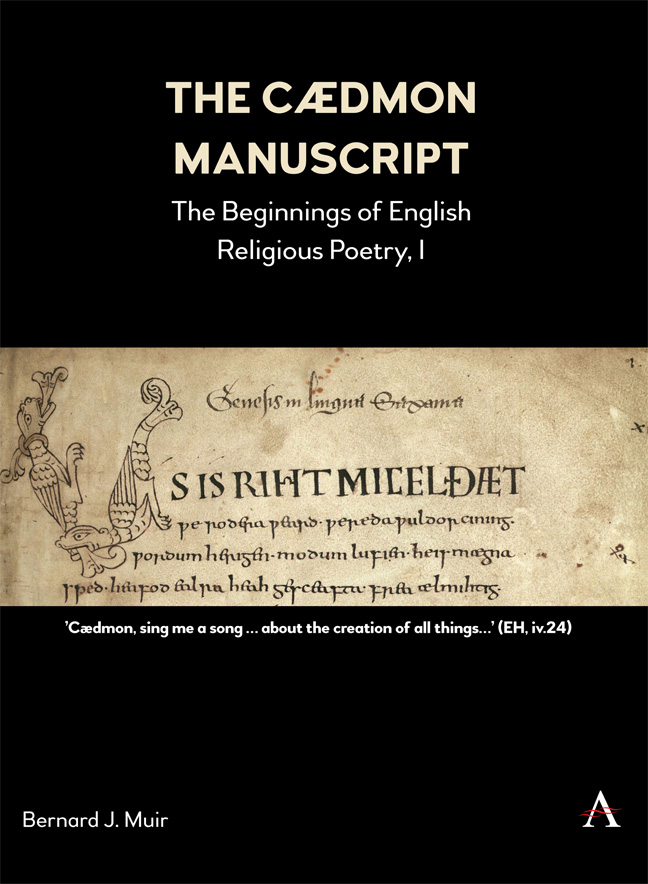Introduction
Published online by Cambridge University Press: 29 February 2024
Summary
1 The Work, its Date, Provenance and Subsequent History
The manuscript presented here is Oxford, Bodleian Library, MS Junius 11. From the beginning it was intended that Junius 11 be an extensively, if not lavishly, illustrated book of Christian poetry; it was perhaps commissioned by a wealthy secular or ecclesiastical patron. It was to be comprised of three poems on the subjects of Creation and the Genesis story down to Abraham and Isaac, the Crossing of the Red Sea recorded in Exodus, and the prophet Daniel; soon after the copying of these poems was completed, however, the final gathering of the manuscript was enlarged and a fourth poem in three sections, dealing with the Fall of the Rebel Angels, the Harrowing of Hell, and the Temptation of Christ was added (whether these were originally three separate poems is discussed later). As was the practice in Anglo- Saxon England, none of the poems was given a title when recorded in the manuscript; they are known today by the names assigned to them by modern editors – Genesis (comprised of two poems designated A and B), Exodus, Daniel and Christ and Satan. The entire manuscript was to be illustrated, but sadly the project was never completed; thus there are blank spaces throughout it where the intended illustrations are lacking (after the final original illustration on p. 88). Two artists were responsible for the Anglo-Saxon illustrations; a third artist of lesser ability added a small number of extra drawings in the twelfth century. One of these, on p. 96, attempts to illustrate an episode in the poem (depicting ‘Abraham and the Messenger', it seems), which indicates that the poems were still being read in the late twelfth century. When other manuscripts in the vernacular (i.e. Old English) were no longer being read and were suffering neglect and falling into disrepair, and even being stripped of their bindings so that they could be reused on newly-recorded texts, MS Junius 11 was rebound, indicating that it was still valued; this enduring interest in the manuscript was probably because it was illustrated – a number of its drawings had already been excised by the thirteenth century.
Information
- Type
- Chapter
- Information
- The Cædmon ManuscriptThe Beginnings of English Religious Poetry, I, pp. 1 - 34Publisher: Anthem PressPrint publication year: 2023
